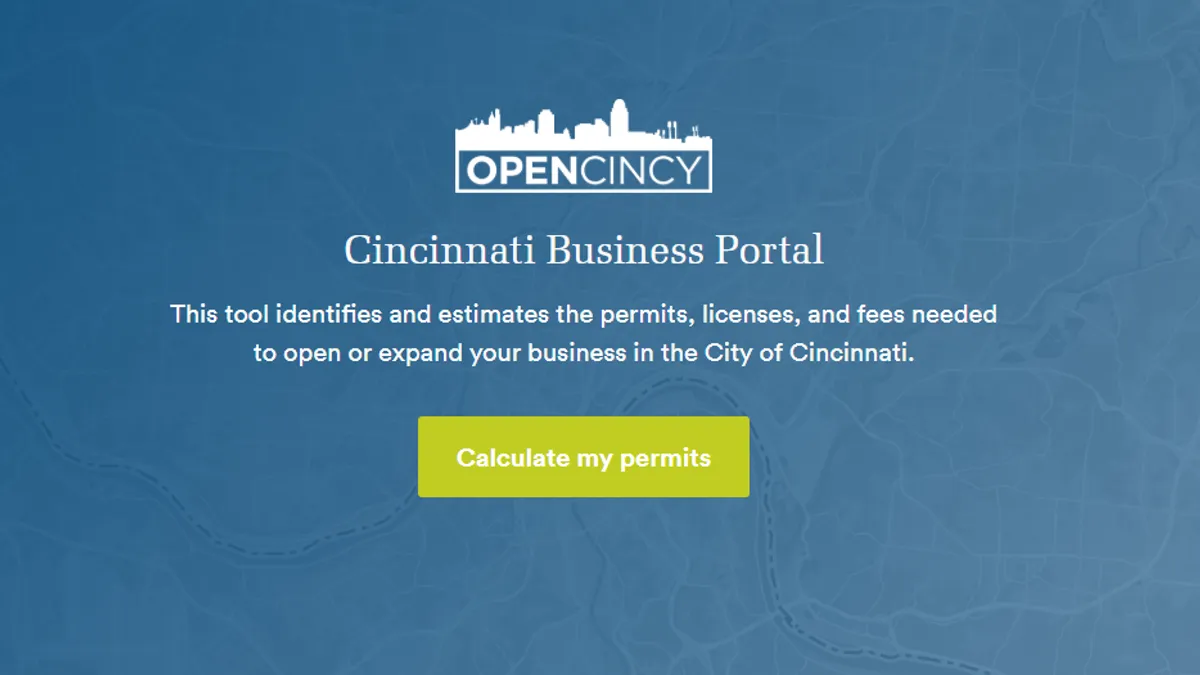Dive Brief:
- The City of Cincinnati has launched a digital tool called "OpenCincy" to help small business owners and entrepreneurs navigate the permitting process to open or expand a business.
- The platform can detail the license, permit and fee requirements for any business, with information customized to the zoning requirements for a particular location.
- The project is a collaboration between the city manager’s office, Department of Buildings and Inspections, and the Office of Performance and Data Analytics, and will launch with a formal event on Friday.
Dive Insight:
Cities have increasingly tried to deploy new technology to simplify the bureaucratic functions of government, making it easier to start a business, apply for public benefits and go through basic city functions. Orlando, for instance, has created a 24-hour website that allows residents to pay parking tickets, file complaints and get permits. Kansas City, KS has created a smartphone app for citizens to pay taxes and report problems. Simplifying and digitizing time-consuming processes not only saves residents and administrators time, but can lead to savings in paper.
Writing for Smart Cities Dive, Infor's vice president of public sector Bob Benstead said smart cities approaches like data analysis should be applied to public service and resident-facing government functions.
"Wherever there is scope in a large, complex municipal administration to simplify processes, cut costs, boost stakeholder engagement, or reinforce citizens’ and employees’ level of satisfaction with their city government, there is a good chance that someone has dreamed up a smart city app for that," Benstead wrote. "And if they have not, if you are the first to identify the need, the right technology partner can probably help you address it."
Cincinnati Mayor John Cranley said in a statement the tool would help small businesses "create jobs, generate tax revenue and help build vibrant, engaged neighborhoods." Small businesses can anchor developing neighborhoods, so the more cities can do to facilitate their development, the better. Cincinnati also touts an additional development: by digitizing the process, the city can get plenty of data on what businesses are looking to build or expand in the city, and where, which can help target future initiatives and investments.











